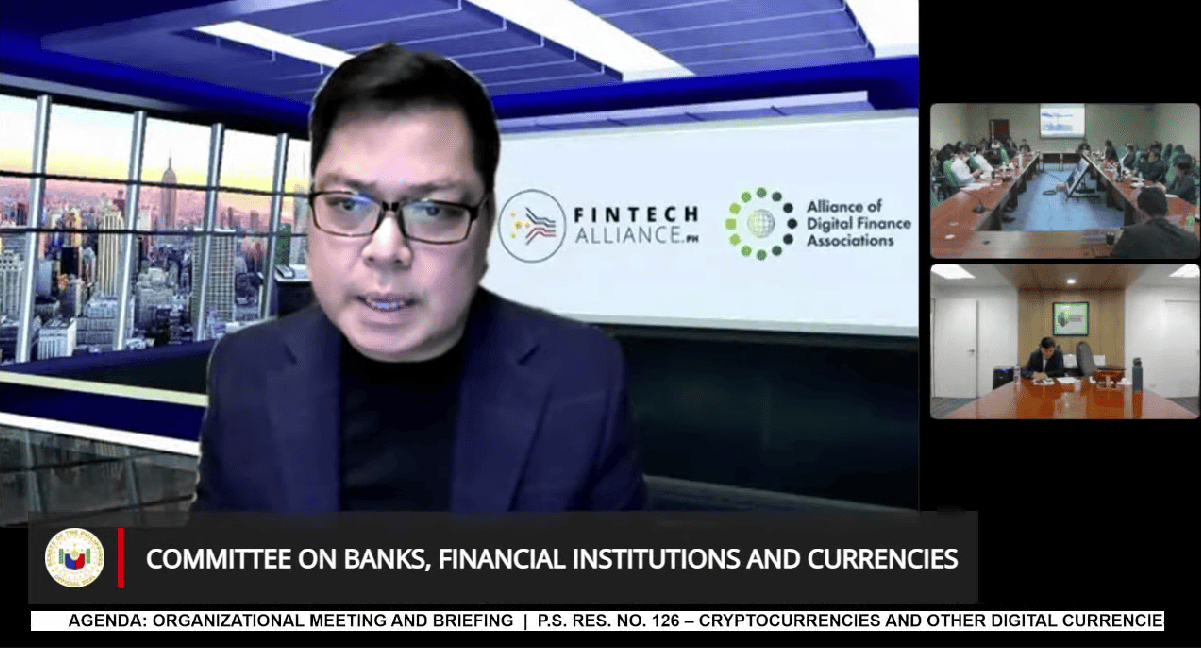Fintech Alliance PH Inc statement on digital assets
Philippine Senate Committee on Banks Hearing
23 August 2022
by Lito Villanueva, FinTech Alliance Founding Chairman
Senate Committee Chair Senator Mark Villar, other members of the Committee, honorable senators, resource speakers, guests, good day.
The FinTechAlliance.ph, the Philippines’ prime trade organization for digital finance and fintech startups and unicorns that collectively generate over 90% of digital transaction volume in the country today, supports Senate Bill 184 and Senate Resolution 126.
As a strategic partner of our regulators, the Bangko Sentral ng Pilipinas, and the Securities and Exchange Commission, the FinTech Alliance continuously engages them in constructive dialogue to further promote enabling regulations to further support innovations for financial inclusion. The Alliance supports a risk-based regulatory regime putting consumer protection at the core. One of which is providing for mechanisms aimed at registration and regulations of emerging technologies such as digital assets.
Among our ASEAN neighbors, Thailand has been aggressive in boosting decentralized virtual currencies. It recently approved four new digital assets companies. Unlike China and India which declared a crackdown on crypto, we are seeing other markets or jurisdictions embracing digital assets given that most of their citizens are already transacting through various digital assets platforms worldwide.
While Cambodia was the first in the ASEAN to roll out its retail central bank digital currency (CBDC) Project Bakong, other markets such as The Philippines, Vietnam, and Indonesia are also likely to do their respective pilots. But given retail investors’ recent losses in the digital assets market, tighter regulation is inevitable.
The inherent problem with cryptocurrency itself should not be ignored. Crypto remains unusually volatile as an asset class. Due to its decentralized nature, a lack of comprehensive regulation, and the non-transparent qualities of many crypto firms, it is much riskier for investors than equities, bonds, gold, or traditional assets.
For us here in the Philippines, we look forward to having risk-based regulations without stifling innovations for inclusion. There must be more clarity on the rules of engagement for emerging technologies such as non-fungible tokens or NFTs, NFT marketplaces, decentralized finance, and exchange-traded funds or EFTs, among others. Both the BSP and the SEC may implement stricter qualifications for the management and licensing of digital assets exchanges with the goal of better protecting retail investors and promoting massive consumer education.

